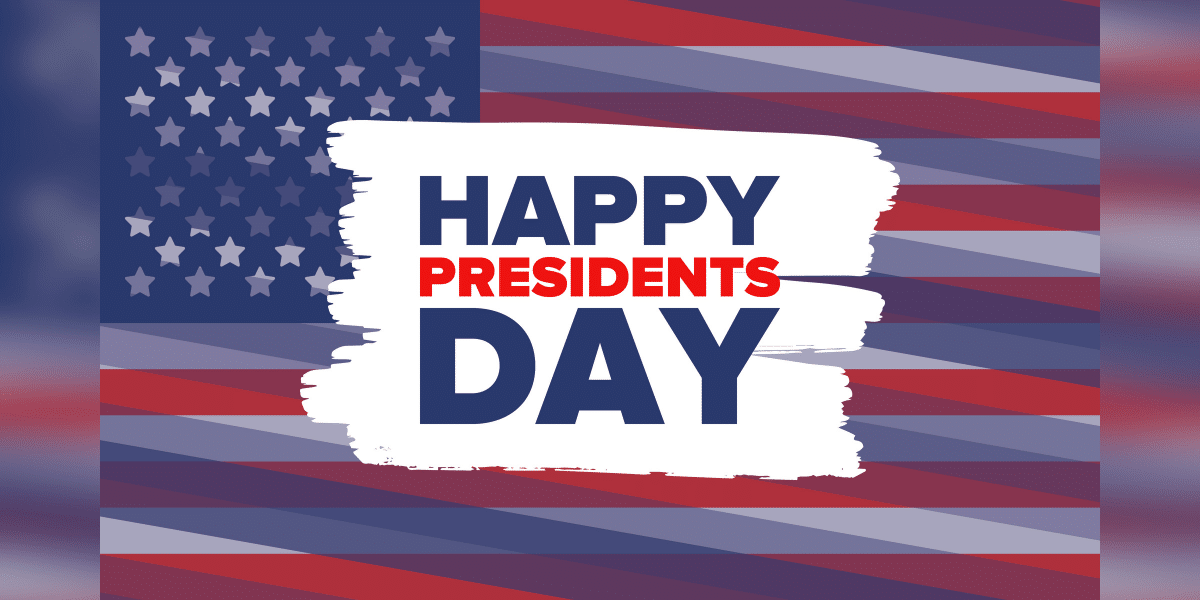Image Commercially Licensed from: DepositPhotos
Presidents’ Day in the United States is more than just another holiday on the calendar. It’s a day imbued with historical and cultural significance.
The origins and meaning of Presidents’ Day reveals how presidents earned their thin ribbons of military valor and presidential leadership through the years. Learn how this holiday is a key moment for reflecting on the legacy of those who have held the nation’s highest office.
The Historical Context of Presidents’ Day
Originally established in 1885, Presidents’ Day was known as Washington’s Birthday, a day set aside to honor the birth of George Washington, the first President of the United States. Washington, often referred to as the “Father of His Country,” played a pivotal role in the nation’s founding, not just as a military leader in the American Revolutionary War but also as a unifying figure in the Republic’s early years.
The holiday was first celebrated on Washington’s birthday, February 22, but it underwent a significant transformation in the mid-20th century. The Uniform Monday Holiday Act of 1968 shifted the celebration of Washington’s Birthday from February 22 to the third Monday.
This move was part of a larger initiative to provide more three-day weekends for the nation’s workers. Still, it also inadvertently set the stage for a broader celebration that included Abraham Lincoln, whose birthday was February 12.
The Evolution Into Presidents’ Day
While the holiday is still officially called “Washington’s Birthday” by the federal government, it has popularly come to be known as Presidents’ Day. This evolution reflects a growing desire to use the day to honor the contributions of all U.S. presidents, not just Washington.
Abraham Lincoln, another revered figure in American history, is often a central focus of Presidents’ Day celebrations. Lincoln, known for his leadership during the Civil War and his efforts to abolish slavery, represents the ideals of unity, freedom, and equality fundamental to the American ethos.
Cultural and Educational Importance
Presidents’ Day has become a significant cultural and educational event in the United States. Schools often use the week of Presidents’ Day to teach students about the accomplishments and challenges faced by various presidents throughout American history. This education is crucial in helping young people understand the evolution of American democracy and the role that leadership plays in shaping a nation.
Moreover, Presidents’ Day serves as a reminder of the responsibilities that come with the presidency and the impact these leaders can have on the country and the world. It is a day for reflection on the qualities that make an effective leader and the importance of upholding the values and principles upon which the United States was founded.
Modern Celebrations and Traditions
Today, Presidents’ Day is marked by various celebrations and traditions across the country. Parades, reenactments, and educational events are common. Additionally, places significant to Washington, Lincoln, and other presidents, such as Mount Vernon and the Lincoln Memorial, become focal points for commemoration and reflection.
Retailers have also adopted Presidents’ Day as a major sales event, offering discounts and promotions. While this commercial aspect might seem disconnected from the holiday’s historical and educational importance, it has become a part of modern observance, reflecting society’s diverse ways of acknowledging the day.
Celebrating Presidents’ Day With Friends and Community
Presidents’ Day offers a unique opportunity to engage with friends and the community in meaningful and educational ways. Hosting a themed gathering or discussion about presidential legacies can provide a platform for sharing perspectives on U.S. history. Alternatively, visiting historical sites, presidential libraries, or museums offers an immersive learning experience about American leadership.
Community service is another impactful way to honor the day, reflecting the civic-minded spirit of past presidents. Organizing volunteer activities or participating in community projects can embody the ethos of presidential leadership through active engagement.
For a more relaxed celebration, consider hosting a movie night featuring documentaries or films about U.S. presidents and significant historical events. This can be both enlightening and entertaining, offering insights into the complexities of the presidency.
A Day of Remembrance and Reflection
Presidents’ Day is a multifaceted holiday that extends beyond the celebration of individual presidents. It reflects a broader appreciation of the presidential office and its impact on American history and values.
On this day, Americans pay homage to the leaders who have guided them through times of peace and conflict. Be sure to take this moment to contemplate the past and consider the future of the nation’s leadership. No matter how you celebrate, Presidents’ Day holds a unique and significant place in American culture and history.
Published by: Nelly Chavez

















